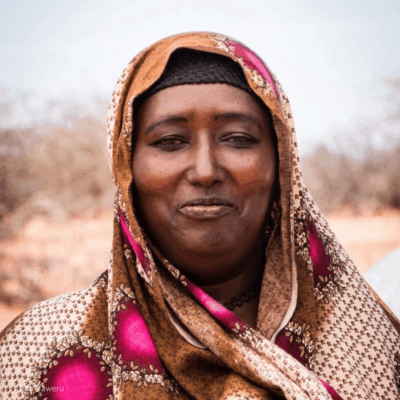Listeners:
Top listeners:
-
 play_arrow
play_arrow
118 | Kenyan Herders Say Judgement Against Them Based on Forged Signatures / Continuation of Episode 117
-
 play_arrow
play_arrow
117 | Surviving Survival Internatinal, Part 1: Kenyan Elders Call Foul on International Media, NGOs
-
 play_arrow
play_arrow
116 | From Ticking Time Bomb to Demographic Dividend: James Mwangi and Kenya's Great Carbon Valley
-
 play_arrow
play_arrow
115 | Unpacking Donald Trump's Very Weird Environmental Orders
-
 play_arrow
play_arrow
114 | Michael Greene: Carbon Cowboy or Lone Ranger? Part 1
-
 play_arrow
play_arrow
113 | The Future of Environmental Finance: Strategies for Biodiversity and Climate Solutions, with David Hill and George Kelly
-
 play_arrow
play_arrow
112 | Fantasy Football and Dynamic Baselines: New Tools for Impact Assessment
-
 play_arrow
play_arrow
111 | The False Dichotomy Between Reductions and Removals (Rerun)
-
 play_arrow
play_arrow
110| Ecological Economics, Systems Thinking, and the Limits to Growth
-
 play_arrow
play_arrow
109 | How Brazil's Quilombola Communities are Planting the Seeds of Sustainability for Small Farms Around the World, with Vasco van Roosmalen of ReSeed
Transcript
In episode 104 of Bionic Planet, I delve into the intricacies of carbon finance with my guest, David Antonioli. We explore the concept of transformational finance, where carbon payments are used to catalyze sustainable practices that can eventually stand on their own. We discuss the limitations of the current additionality tool, which focuses on individual project assessments, and the need for a more holistic approach to drive long-term sector-wide transitions.
David Antonioli, with his extensive experience in climate change and carbon markets, shares insights on the need for a paradigm shift in carbon finance. He emphasizes the importance of designing the system to address what happens when carbon finance ends and the necessity of building a foundation for the future of sustainable practices.
We touch upon real-world examples, such as projects in Paraguay shifting from cattle ranching to sustainable timber harvesting, to illustrate the challenges of individual project assessments and the potential for sector-wide transformations. We discuss the need for thoughtful simplifications in research and understanding market dynamics to identify positive tipping points that can lead to sustainable transitions.
Furthermore, we highlight the positive list approach adopted by organizations like the Climate Action Reserve and the California Resources Board, which use standardized methods to define additional activities upfront. This approach streamlines the process and sets a clear path for achieving long-term sustainability goals.
Overall, the episode delves into the complexities of carbon finance, the importance of explicit transformational strategies, and the potential for sector-wide transitions to drive sustainable practices in the future.
Timestamps
- 00:00:00 – Introduction to Transformational Finance
- 00:05:30 – Challenges in Carbon Accounting
- 00:10:39 – Critique of Additionality Concept
- 00:14:39 – Importance of Holistic Understanding
- 00:17:27 – Need for Interlocking Solutions
- 00:20:36 – Overhauling Local Economies
- 00:23:15 – Implicit vs. Explicit Transformation
- 00:27:06 – Addressing Entrenched Interests
- 00:33:43 – Proposal for Sector-Wide Transformation
- 00:38:02 – Limitations of Current Additionality Tools
- 00:42:24 – Focus on Sector-Wide Transformation
- 00:45:06 – Procedures for Overhauling Local Economies
Quotes
- “We know that the enemy is carbon, and we know its ugly face. We should put a big fat price on it, and of course, add to that, drop the subsidies.” – 00:00:20
- “Everything else is a bonus, a positive externality that critics of carbon finance choose to ignore.” – 00:01:42
- “We’re missing the forest for the trees.” – 00:14:15
- “We’re so focused on every single little branch that we’ve lost what the bigger opportunity is.” – 00:44:22
- “We’re so in the weeds of the detail.” – 00:44:32
- “We’re so focused on every single little branch that we’ve lost what the bigger opportunity is.” – 00:44:22
- “We’re so in the weeds of the detail.” – 00:44:32
- “We’re so focused on every single little branch that we’ve lost what the bigger opportunity is.” – 00:44:22
- “We’re so in the weeds of the detail.” – 00:44:32
- “We’re so focused on every single little branch that we’ve lost what the bigger opportunity is.” – 00:44:22
Episodes
117 | Surviving Survival Internatinal, Part 1: Kenyan Elders Call Foul on International Media, NGOs
April 13, 2025
116 | From Ticking Time Bomb to Demographic Dividend: James Mwangi and Kenya’s Great Carbon Valley
February 25, 2025
115 | Unpacking Donald Trump’s Very Weird Environmental Orders
January 27, 2025
114 | Michael Greene: Carbon Cowboy or Lone Ranger? Part 1
December 6, 2024







